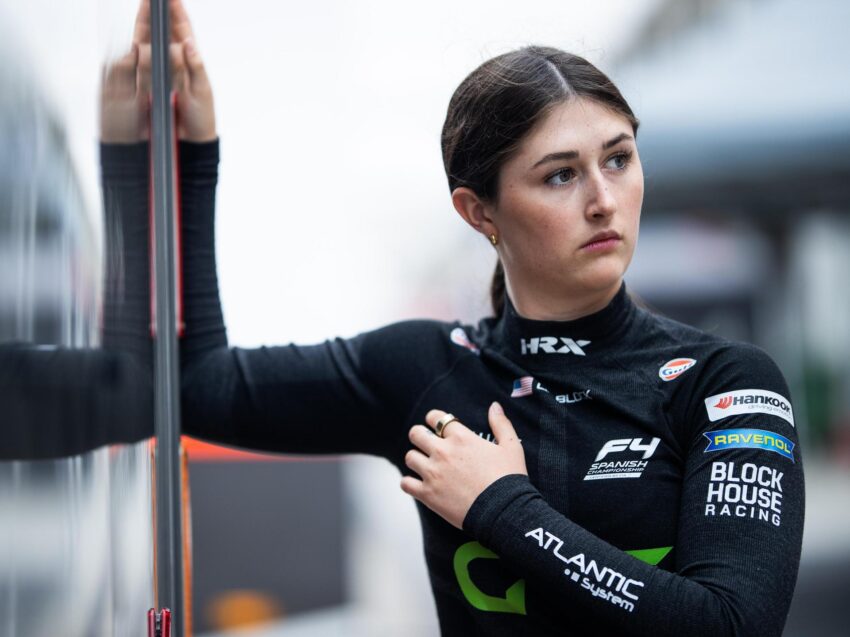Motorsport, historically dominated by men, has been the stage for inspiring stories of women who have broken barriers, proving that talent knows no gender. These pioneers have left an indelible mark on the history of motorsport, paving the way for future generations of women to pursue their dreams, both on and off the track.
Formula 1: Women Who Reached the Pinnacle of Motorsport
The role of women in Formula 1 has historically been overlooked, to the point where many are unaware that women have competed and excelled in this category.
María Teresa de Filippis was the first woman to participate in Formula 1, debuting at the Belgian Grand Prix in 1958. She faced not only the challenges of the circuit but also an environment that was just beginning to accept women in motorsport. Her courage and determination laid the foundation for future generations.
Seventeen years later, Lella Lombardi achieved a historic milestone by becoming the only woman to score points in a Formula 1 race. This happened at the 1975 Spanish Grand Prix, where she finished sixth, solidifying her place in motorsport history.
In more recent times, Susie Wolff shattered another glass ceiling as the first woman in over 20 years to participate in an official Formula 1 session. Joining the Williams team as a development driver in 2012, her participation in the 2014 British Grand Prix was not just a personal achievement but also a symbol of increasing inclusion in a male dominated sport.
However, Wolff’s impact extends far beyond her time in Formula 1. Over the years, she has been a passionate advocate for initiatives aimed at promoting female participation in motorsport.
Empowering the Next Generation
In 2016, Susie Wolff founded the Dare to be Different program, aiming to inspire women to challenge norms and enter the world of motorsport, where opportunities for women have historically been limited. This initiative sought to change perceptions, create a supportive community, and provide women with the tools to share experiences, develop skills, and achieve their dreams.
In 2019, the FIA Women in Motorsport Commission partnered with Susie Wolff and Dare to Be Different to launch an educational program for girls aged 8 to 18, which was later renamed Girls on Track.
Girls on Track aims to spark interest in motorsport among girls and young women. Through a series of educational activities and events, the project provides pathways for discovering potential in areas such as driving, engineering, and management within motorsport. The initiative has expanded globally, offering opportunities and mentorship to thousands of young women eager to explore this thrilling sport.
On a national level, programs like the Catalan Dona Gas facilitates. Supported by the Equality Commission of the Catalan Motorsport Federation (FCA), it focuses on promoting female talent in motorsport through karting, rallies, and official roles. By providing training, guidance, and financial support, Dona Gas facilitates women’s participation in motorsport while promoting resilience, teamwork, and leadership through mentorship, coaching, and exclusive competitions.
Having female role models in motorsport is crucial for inspiring new generations to chase their dreams, showing them that achieving the highest level is possible regardless of gender. However, young women aspiring to compete in Formula 1 or other international competitions often face doubts about their potential in a historically male dominated environment. This is where initiatives like the F1 Academy and W Series play a critical role.
These competitions not only provide platforms to showcase female talent but also reshape the narrative around motorsport. These championships serve as more than just symbols of representation; they are constant reminders that women belong in all facets of motorsport. With dedication, effort, and the right opportunities, they can achieve anything they set their minds to.
Beyond the Track
Motorsport extends beyond the driver’s seat, and it is vital to recognize the contributions of women in all roles that shape this thrilling sport. While drivers have historically been the most visible figures, women play essential roles in engineering, team management, leadership, communication, event organization, and marketing. The true evolution of motorsport lies in the inclusion of women at every level of the industry.
“You can’t be what you can’t see” — visibility is a key factor for change in any industry, and motorsport is no exception. This visibility not only benefits women already involved in the sport but also attracts more fans who seek reflections of their passions and aspirations.
Female fans are increasingly influential, not only as spectators but also as creators of accessible and educational content about the sport. Through social media, many women are demystifying motorsport, explaining technical aspects, rules, strategies, and race dynamics in simple terms. This content reaches new audiences, empowering women to engage as informed and active followers. Content creators are vital for making motorsport more inclusive and accessible, offering pathways for more women to connect with the sport as fans, professionals, or future participants.
According to a 2021 survey by Motorsport Network, female participation in F1 fandom grew significantly, representing 18.3% of the total sample — an 83% increase since 2017 and a 177% increase compared to 2015.
Additionally, in November 2022, F1 CEO Stefano Domenicali stated that around 40% of F1 fans were women, an 8% increase since 2017.
These data reflect a growing trend in the participation and interest of women in Formula 1 in recent years, which can be extrapolated to other motorsport categories.
Legacy and Future
At the F4 Spanish Championship, we are committed to diversity and inclusion, fostering the next generation of drivers, both male and female.
Breaking limits is not just about skill; it’s about attitude.
Breaking limits is not just about skill; it’s about attitude.
Over the years, our championship has featured outstanding female drivers who have left an indelible mark on the competition:
- Marta García (2016, 2017)
- Belén García (2019)
- Nerea Martí (2019, 2024)
- Irina Sidorkova (2019)
- Léna Bühler (2020)
- Emely de Heus (2021)
- Lola Lovinfosse (2021, 2022)
- Aurelia Nobels (2022)
- Victoria Blokhina (2022)
- Lia Block (2024)
- Joanne Ciconte (2024)
Our goal is to continue expanding this list of drivers in upcoming seasons and establish our championship as the platform where tomorrow’s talent, regardless of gender, can find their opportunity to shine.

















